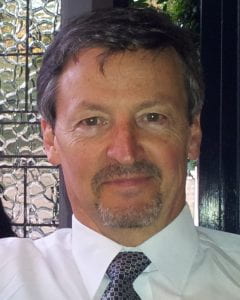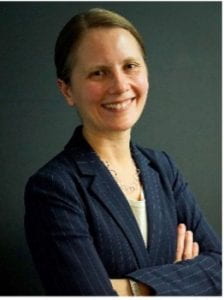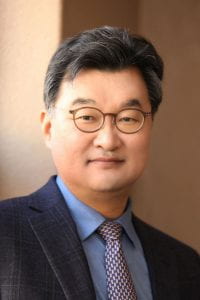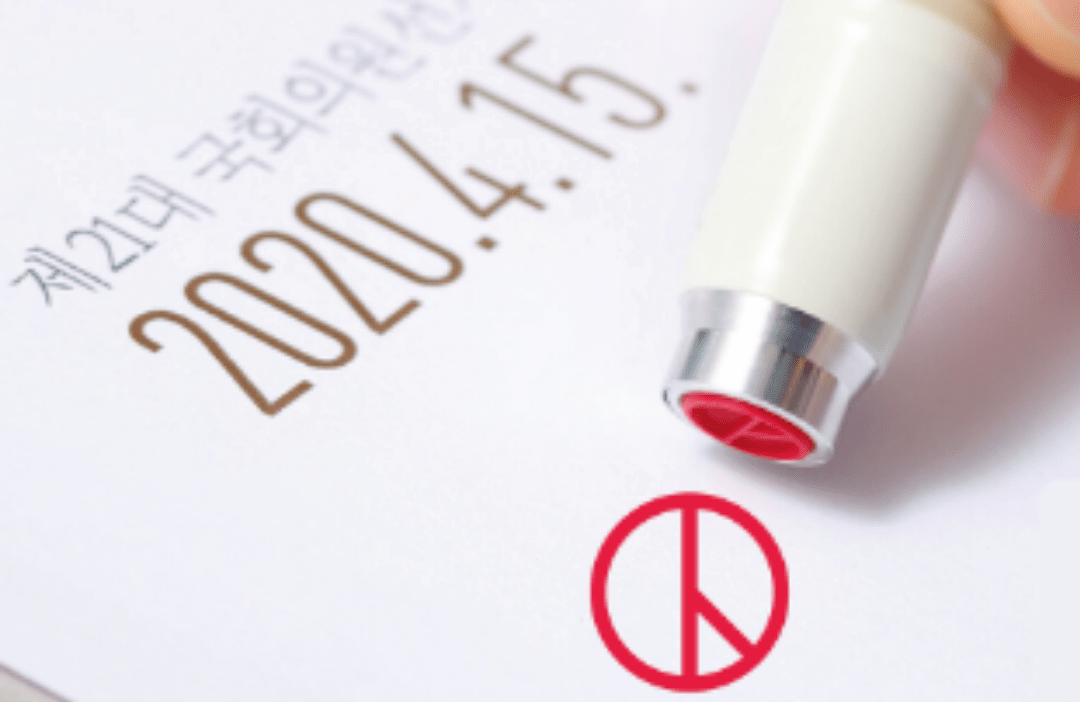The GW Institute for Korean Studies & the East Asia National Resource Center Present:
Korea Policy Forum Webinar
“South Korea’s National Assembly Elections:
Prospects of New Political Geography and Foreign Policy”
Speakers
Stephen Costello, Non-Resident Scholar, GW Institute for Korean Studies
Celeste Arrington, Korea Foundation Assistant Professor of Political Science and International Affairs, George Washington University
Heung-Kyu Kim, Director of China Policy Institute, Ajou University
Moderator
Yonho Kim, Associate Director, GW Institute for Korean Studies
Date & Time
Monday, April 20, 2020 9:15 a.m. – 10:30 am.
Event Description
On April 15, South Korea will hold the general elections amid the ongoing coronavirus pandemic. Not only the unprecedented fight against COVID-19 but also the new proportional representation system emerged as critical variables for the election results. What are the main political parties’ strategies and challenges leading up to the elections and how did they lead to the election outcome? How would the political landscape, including the power relations within the main political parties, be shifting in the coming months? What would be the potential impact of the election results on Seoul’s repositioning its foreign and security policy? Please join the GW Institute for Korean Studies for an online discussion with experts from both the U.S. and South Korea on the prospects of a new domestic political geography in South Korea and its potential impact on U.S.-ROK relations and Seoul’s North Korea policy.
Speakers
 Stephen Costello has been immersed in South Korean politics and foreign policy since 1990. He is the Director of the policy NGO AsiaEast.Org and columnist with The Korea Times in Seoul. He holds a bachelor’s degree in Public Policy Analysis from Syracuse University. Mr. Costello was formerly director of the Korea Program at the Atlantic Council of the US and director of the Kim Dae Jung Peace Foundation/USA. He was a political consultant and policy advisor to overseas political parties and mayors, and Washington manager for overseas NGOs. He has consulted for small technology businesses in Korea and the US. He has advised ministers and staff at the Foreign and Unification ministries in Seoul and the State Department in Washington. Beyond South Korea, Costello’s focus includes the Korean Peninsula, Northeast Asia, and the US interests in the region.
Stephen Costello has been immersed in South Korean politics and foreign policy since 1990. He is the Director of the policy NGO AsiaEast.Org and columnist with The Korea Times in Seoul. He holds a bachelor’s degree in Public Policy Analysis from Syracuse University. Mr. Costello was formerly director of the Korea Program at the Atlantic Council of the US and director of the Kim Dae Jung Peace Foundation/USA. He was a political consultant and policy advisor to overseas political parties and mayors, and Washington manager for overseas NGOs. He has consulted for small technology businesses in Korea and the US. He has advised ministers and staff at the Foreign and Unification ministries in Seoul and the State Department in Washington. Beyond South Korea, Costello’s focus includes the Korean Peninsula, Northeast Asia, and the US interests in the region.
 Celeste Arrington is Korea Foundation Assistant Professor of Political Science and International Affairs at GW. She specializes in comparative politics, with a regional focus on the Koreas and Japan. Her research and teaching focus on law and social movements, the media, lawyers, policy processes, historical justice, North Korean human rights, and qualitative methods. She is also interested in the international relations and security of Northeast Asia and transnational activism. She is the author of Accidental Activists: Victims and Government Accountability in South Korea and Japan (2016) and has published in Comparative Political Studies, Law & Society Review, Journal of East Asian Studies, Pacific Affairs, Asian Survey, and the Washington Post, among others. She received a Ph.D. from the University of California, Berkeley, an MPhil from the University of Cambridge, and an A.B. from Princeton University. She is currently writing a book that analyzes the role of lawyers and legal activism in Japanese and Korean policies related to persons with disabilities and tobacco control.
Celeste Arrington is Korea Foundation Assistant Professor of Political Science and International Affairs at GW. She specializes in comparative politics, with a regional focus on the Koreas and Japan. Her research and teaching focus on law and social movements, the media, lawyers, policy processes, historical justice, North Korean human rights, and qualitative methods. She is also interested in the international relations and security of Northeast Asia and transnational activism. She is the author of Accidental Activists: Victims and Government Accountability in South Korea and Japan (2016) and has published in Comparative Political Studies, Law & Society Review, Journal of East Asian Studies, Pacific Affairs, Asian Survey, and the Washington Post, among others. She received a Ph.D. from the University of California, Berkeley, an MPhil from the University of Cambridge, and an A.B. from Princeton University. She is currently writing a book that analyzes the role of lawyers and legal activism in Japanese and Korean policies related to persons with disabilities and tobacco control.
 Heung-Kyu Kim is the founder and Director of China Policy Institute and professor in the department of political science at Ajou University, South Korea. He also served as a professor at the Institute of Foreign Affairs and National Security, South Korea’s Ministry of Foreign Affairs. His current assignments include Policy Advisory Board Member for the Ministry of National Defense and the ROK Army and a member of the Foreign Ministry’s Reform Commission. He also served as Director of Foreign Affairs Subcommittee on the Presidential Commission on Policy Planning, Team Leader of Security and Defense in the Presidential Task Force of Future Vision 2045, a board member of the National Security Council and a board member of National Defense Reform Commission. Dr. Kim’s publications include China and the U.S.-ROK Alliance: Promoting a Trilateral Dialogue (CFR, 2017), Enemy, Homager or Equal Partner?: Evolving Korea-China Relations (2012), From a Buffer Zone to a Strategic Burden: Evolving Sino-North Korea Relations during Hu Jintao Era (2010). His book China’s Central-Local Relations and Decision-Making received an award for Excellency of the Year by the Ministry of Culture in 2008. He also received the NEAR Foundation Academic prize of the year in the area of foreign policy and security in 2014. Kim received his BA and MA in international relations from Seoul National University, South Korea, and Ph.D. in Political Science from the University of Michigan.
Heung-Kyu Kim is the founder and Director of China Policy Institute and professor in the department of political science at Ajou University, South Korea. He also served as a professor at the Institute of Foreign Affairs and National Security, South Korea’s Ministry of Foreign Affairs. His current assignments include Policy Advisory Board Member for the Ministry of National Defense and the ROK Army and a member of the Foreign Ministry’s Reform Commission. He also served as Director of Foreign Affairs Subcommittee on the Presidential Commission on Policy Planning, Team Leader of Security and Defense in the Presidential Task Force of Future Vision 2045, a board member of the National Security Council and a board member of National Defense Reform Commission. Dr. Kim’s publications include China and the U.S.-ROK Alliance: Promoting a Trilateral Dialogue (CFR, 2017), Enemy, Homager or Equal Partner?: Evolving Korea-China Relations (2012), From a Buffer Zone to a Strategic Burden: Evolving Sino-North Korea Relations during Hu Jintao Era (2010). His book China’s Central-Local Relations and Decision-Making received an award for Excellency of the Year by the Ministry of Culture in 2008. He also received the NEAR Foundation Academic prize of the year in the area of foreign policy and security in 2014. Kim received his BA and MA in international relations from Seoul National University, South Korea, and Ph.D. in Political Science from the University of Michigan.
Moderator
 Yonho Kim is Associate Research Professor of Practice and Associate Director of GW Institute for Korean Studies. He specializes in North Korea’s mobile telecommunications and U.S. policy towards North Korea. Kim is the author of North Korea’s Mobile Telecommunications and Private Transportation Services in the Kim Jong-un Era (2019) and Cell Phones in North Korea: Has North Korea Entered the Telecommunications Revolution? (2014). His research findings were covered by various media outlets, including Wall Street Journal, The Atlantic, Yonhap News, and Libération. Prior to joining GWIKS, he extensively interacted with the Washington policy circle on the Korean peninsula as Senior Researcher of the U.S.-Korea Institute at Johns Hopkins University School of Advanced International Studies, Senior Reporter for Voice of America’s Korean Service, and Assistant Director of the Atlantic Council’s Program on Korea in Transition. He holds a B.A. and M.A. in International Relations from Seoul National University, and an M.A. in International Relations and International Economics from Johns Hopkins University School of Advanced International Studies.
Yonho Kim is Associate Research Professor of Practice and Associate Director of GW Institute for Korean Studies. He specializes in North Korea’s mobile telecommunications and U.S. policy towards North Korea. Kim is the author of North Korea’s Mobile Telecommunications and Private Transportation Services in the Kim Jong-un Era (2019) and Cell Phones in North Korea: Has North Korea Entered the Telecommunications Revolution? (2014). His research findings were covered by various media outlets, including Wall Street Journal, The Atlantic, Yonhap News, and Libération. Prior to joining GWIKS, he extensively interacted with the Washington policy circle on the Korean peninsula as Senior Researcher of the U.S.-Korea Institute at Johns Hopkins University School of Advanced International Studies, Senior Reporter for Voice of America’s Korean Service, and Assistant Director of the Atlantic Council’s Program on Korea in Transition. He holds a B.A. and M.A. in International Relations from Seoul National University, and an M.A. in International Relations and International Economics from Johns Hopkins University School of Advanced International Studies.
Registered guests will receive a separate WebEx invitation email with details
for joining the event a day before the event.
This event is on the record and open to the public.
The Korea Policy Forum is made possible by a generous grant provided by the KDI School of Public Policy and Management.


